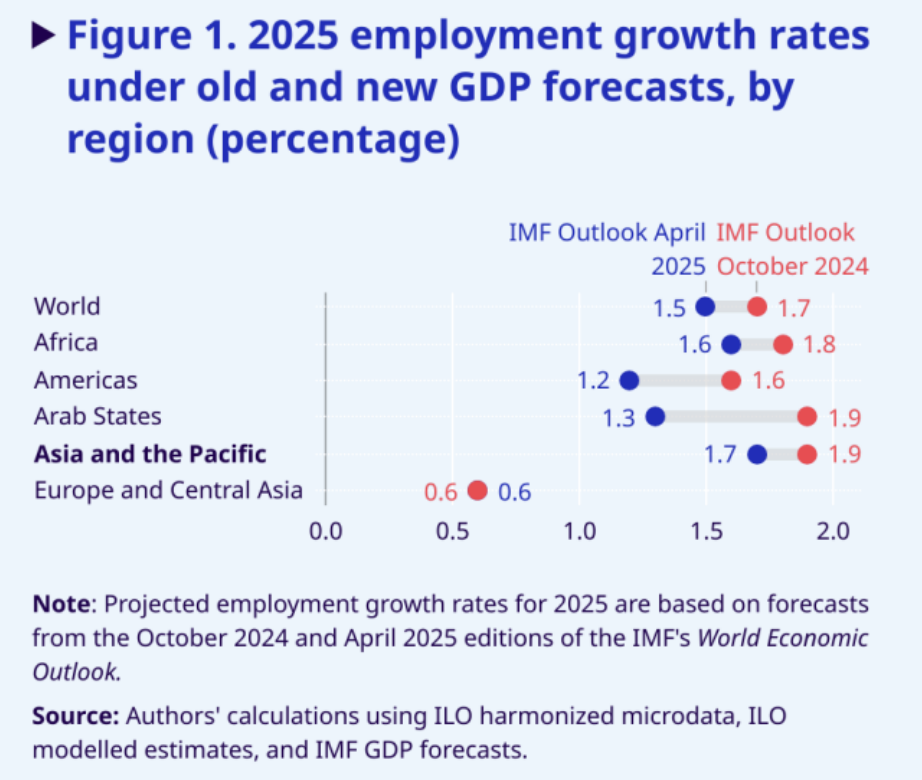
Trade uncertainty blamed for the slower estimate

Employment in the Asia-Pacific region is expected to grow by approximately 34 million this year, according to the International Labour Organisation (ILO).
The ILO estimates that job growth in APAC is set to grow by 1.7% in 2025, the fastest pace anticipated globally, even after a slight downward revision due to economic uncertainty.
The previously expected growth rate in the region was 1.9%, or 38 million, for 2025, tying with the Arab States, according to ILO data.

"While the 1.7% annual employment growth for the region remains the highest worldwide, it still represents a steep decline in the estimated number of jobs expected for the region in 2025," said Steven Tobin, Labour Economist at the ILO Regional Office for Asia and the Pacific, in a statement.
According to the report, the estimated four-million drop in APAC's employment growth also accounts for more than half of the downward revised estimates for job growth globally.
The ILO now expects global employment growth to reach 53 million, down by seven million jobs from the previous 60-million estimate.
Meanwhile, the report attributed the drop in APAC's employment growth to the region's economic exposure to recent trade uncertainty.
"The region is susceptible to changing trading patterns, with nearly three per cent of total employment (or more than 55 million jobs) linked to final demand in the United States of America through trade and supply chains, with manufacturing accounting for nearly half of that figure," the report states.
To boost formal employment creation and support workers and businesses, a number of measures are needed, according to the ILO.
"As workers and enterprises face heightened risks of disruption, efforts to improve worker and enterprise resilience by expanding and diversifying markets, improving social protection schemes, and bolstering active labour market policies such as reskilling opportunities in in-demand occupations, among others, will be needed," Tobin said.